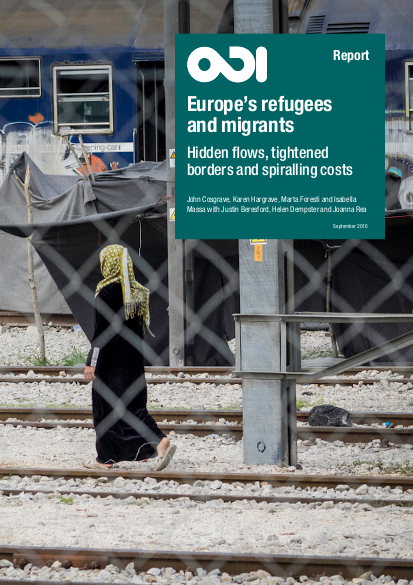
The European response to the current migration ‘crisis’ has been swift. Since 2014, at least €17 billion has been spent on deterring refugees and migrants through tighter border controls and bilateral agreements, such as the EU-Turkey deal. These measures have been effective in reducing flows – as few as 330,000 refugees and migrants are likely to arrive in Europe this year via the Mediterranean through ‘overt’ routes.
However, Europe will still see 890,000 asylum applications in 2016. This discrepancy between overt arrivals and asylum applications shows that there are many people whose journeys to Europe we know little about. Border controls have, in many cases, simply rerouted refugees and migrants towards alternative, ‘covert’ routes.
As a result of the analysis in this report, we conclude that Europe needs a new approach. It needs to shift from an emphasis on controlling and deterring migration, towards a pragmatic and effective approach to manage it better. This report makes four key policy recommendations:
- European governments should facilitate and increase legal pathways so that they can monitor and more effectively manage flows of refugees and migrants.
- A new global alliance of migration and displacement data is needed.
- Governments should commit to more transparency on deterrence costs, as well as the significant reception and procedural costs in both national and EU budgets.
- Forge new international and regional coalitions built around common interests and objectives that aim to ensure safe, controlled and well-managed migration.